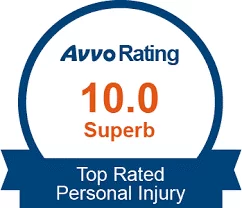Atlanta Medical Malpractice Lawyer

Atlanta Medical Malpractice
You have complete trust in health care providers, so it’s hard to understand it when they harm you. You can’t help but feel betrayed when your health care provider engages in medical malpractice. The bond of trust has been broken, and you’re left picking up the pieces. You have to put your time and energy into recovering, all while trying to survive on a limited income if you can’t work due to your injuries. As devastating as that is, your situation is made even worse because it could have been avoided if the provider had met the standard of care. You are under a lot of stress, and that stress reaches a new level when you have to deal with the provider’s insurance company. The company doesn’t want to give you the compensation you deserve, but fortunately, we can fight back and recover your financial losses by filing a medical malpractice claim.
Common Injuries from Medical Malpractice
Medical malpractice can lead to devastating injuries. People often have to deal with the injuries for the rest of their lives. Common medical malpractice claims include:
- Birth Injuries
- Surgical Errors
- Delayed Diagnosis
- Misdiagnosis
- Failure to Treat
- Prescription Errors
What expenses can be compensated?
Why choose greathouse law?

- Free Consultation – Tell Us What Happened & See If You Have A Case And What It Might Be Worth. We do consultations by phone and virtually.
- Highly Reviewed & Rated – Over 100 Google Reviews. 10.0/10.0 with 5-Star rating on respected legal website Avvo.
- Highly Responsive – We pride ourselves in fast response times when communicating with our clients. We will never let your questions or concerns go unaddressed.
- Efficient – Our approach focuses on efficiency and speed to resolve cases as quickly as we can to get you your money faster.
- No Case Is Too Difficult or Complex – This is where tenacity and knowledge of the law matters. We do what is necessary even in difficult cases.
- Straight Shooters – You’ve made an important decision in your life. We respect you for that. Our approach focuses on efficiency and speed to resolve cases as quickly as we can to get your life back to normal sooner.
- Caring & Compassionate (truly) – We’re sorry for what happened to you or your loved one. Our team is incredibly experienced, and they truly understand the complications that Personal Injury can bring upon a family.
- Personalized Attention – We understand and respect that every client’s needs are unique. We treat all of our clients with the attention they deserve.
- We Keep You Updated – Transparency is key. We want you to know what’s happening with your case at all points in the process.
- Flexible Meeting Times – To accommodate your busy schedule.
- No Fee Unless You Win – No attorney fees or costs unless we win your case.
- Atlanta & All Georgia – Our office is in Atlanta but we accept cases everywhere in Georgia.
- 2nd Opinions Available – Already have a lawyer? Let us provide you a 2nd opinion on your case.
- Available 24/7 – We answer the phone literally 24 hours a day 7 days a week. You may also contact us by the form on this page.
Schedule a case review
Professional Associations

Medical Malpractice Claim Basics
Medical malpractice claims are among the most complicated in the Georgia legal system. The victim must prove that the provider failed to meet the standard of care and that that caused the injury. Also, the victim must determine the responsible party. Sometimes, the responsible party isn’t the health care provider; instead, it is the medical facility. While the victim works to build a case, the medical malpractice insurance company will do the same. The company will strive to prove that the defendant was not negligent or that the negligence did not cause the injury. While the company hopes to avoid paying compensation, it might offer a small settlement to make the case disappear. Dealing with the insurance company is difficult, so it’s wise to consult with a medical malpractice attorney before moving forward.
When you consult with an attorney, you don’t necessarily have to file a lawsuit. Instead, you have the option of settling the case out of court. Your attorney will go over the medical malpractice case with you and help you determine the best course of action, so you can get the compensation you deserve.
Medical Malpractice Accidents
Medical malpractice occurs in Atlanta for numerous reasons. Often, these cases are the result of malpractice during birth that leads to injuries, such as brain trauma or fractures. Malpractice claims also occur when providers fail to properly diagnosis patients, causing their medical problems to worsen. Misdiagnosis and failure to treat can also occur, as can prescription errors. In each of these cases, it’s only malpractice if the provider was negligent in breaching the standard of care. Proper representation is necessary when investigating and filing medical malpractice claims. Hiring an attorney before filing a malpractice claim can help people hold medical professionals and facilities accountable.
“As a former felony prosecutor, I believe that there is no fight that is too small or too big to fight when seeking justice for my clients.”
Do I have a case?
If you or a loved one was injured as a result of negligence, you might have a case against the health care provider or facility. You must file the claim before the statute of limitations runs out and meet other criteria to have a successful claim. Getting an experienced medical malpractice attorney is the first step in building a successful case, so you can get the compensation you need to recover from your injuries. Your attorney will help you recover damages to protect you today and in the future.
How much is my case worth?
Your case must be evaluated to determine how much it is worth. An experienced attorney can look at the evidence, your injury, the circumstances surrounding the case, and more to give you a good idea of how much you can expect to recover. Depending on the nature of your clam, you might be eligible to recover both economic and noneconomic damages, such as pain and suffering.
Our firm understands the legal process and knows what goes into proving medical malpractice claims in Georgia. Our successful record will give you confidence as we move forward with your claim.
Required Field*
![]() Your Information Is Safe With Us
Your Information Is Safe With Us
We respect your privacy. The information you provide will be used to answer your question
or to schedule an appointment if requested.
Recent Posts
5 Common Injuries from a Scooter Crash in Atlanta
Atlanta’s streets have seen a surge in popularity of e-scooters. These zippy little vehicles offer a convenient…
What to Expect Legally After a Georgia Truck Accident
Truck accidents, unfortunately, occur all too frequently, leaving a trail of devastation in their wake. These incidents…
What Are the Three Main Categories of Distracted Driving in Georgia?
Every day, Georgia’s roads witness a silent crisis that claims an average of five lives. Though the…





